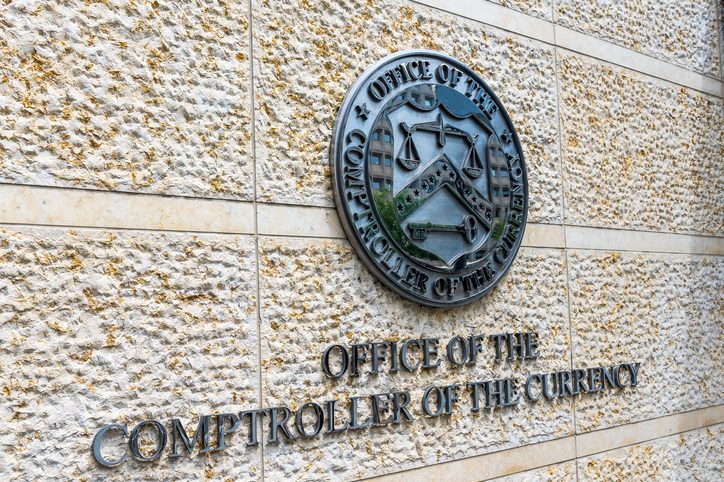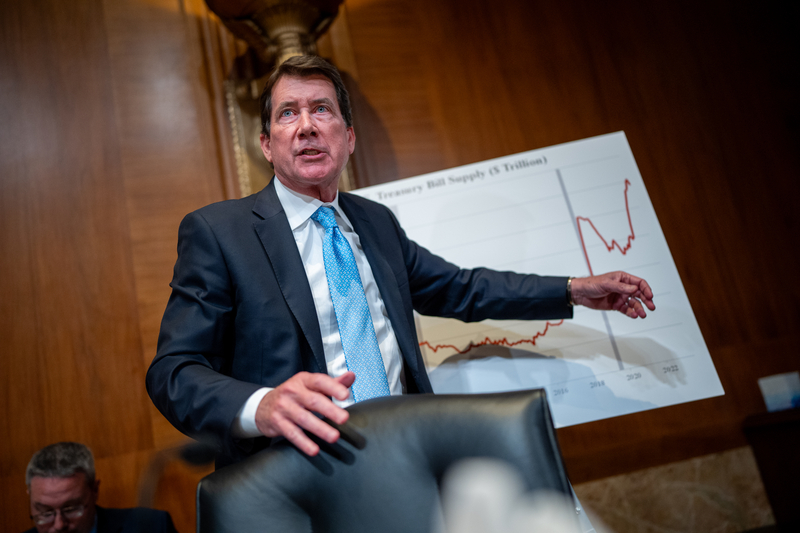The EU’s Corporate Sustainability Due Diligence Directive (CSDDD) is controversial on both sides of the Atlantic. The European Commission’s recent omnibus proposal would scale back the CSDDD (see Ropes & Gray’s article An in-depth look at the leaked Draft Directive on corporate sustainability), although some detractors in the EU believe the proposal does not go far enough and have called for the CSDDD to be paused in its entirety.
Here in the US, in late February, prominent House and Senate Republicans and officials from 26 states sent public letters calling on the Trump Administration to take action to curtail the CSDDD, as discussed in this Ropes & Gray article US Congress members set out case against EU sustainability rules. However, US concern over the CSDDD has not been only a Republican issue. Biden Administration then-Treasury Secretary Janet Yellen also expressed concerns.
The latest US salvo against the CSDDD is the Prevent Regulatory Overreach from Turning Essential Companies into Targets Act – the PROTECT USA Act for short. Sponsored by Senator Bill Hagerty (Republican, Tennessee) and introduced March 12, the proposed Act seeks to limit the application of the CSDDD. The stated purpose of the Act is to prohibit entities integral to the national interests of the United States from participating in any foreign sustainability due diligence regulation, including the EU CSDDD, which is specifically called out by name in the legislation.
To quote from the press release announcing the bill: “American companies should be governed by US laws, not unaccountable lawmakers in foreign capitals,” said Senator Hagerty. “The European Union’s ideologically motivated regulatory overreach is an affront to US sovereignty. I will use every tool at my disposal to block it.”
Key points from the Bill
The Act would prohibit entities integral to US national interests from complying with any foreign sustainability due diligence regulation, except in compliance with US law or lawfully in the ordinary course of business.
The bill contains a detailed definition of what constitutes an entity integral to US national interests. The definition picks up any business entity that:
- does business with the US Federal Government;
- is organized under US law, or is a foreign subsidiary of a US entity, that:
- derives at least 25% of its revenue from activities related to the extraction or production of raw materials, including cultivating biomass, exploring or producing fossil fuels, mining and processing any material derived from any of the foregoing for human use or benefit;
- has a primary North American Industry Classification System code or foreign equivalent associated with the manufacturing sector;
- derives at least 25% of its revenue from activities related to the mechanical, physical or chemical transformation of materials, substances or components into new products; or
- is engaged in the production of arms or other products integral to US national defense or the production, mining or processing of any critical mineral; or
- the President otherwise identifies as integral to US national interests.
As indicated by the above definition, the particular focus of the Act is companies in the extractive and manufacturing sectors. The rationale is that these companies contribute significantly to US prosperity and the growth of the world economy and that maintaining and, in some cases, increasing access to extractive sector supplies such as agriculture, energy, mining and timber, and access to materials from the manufacturing sector, are critically important.
Although the CSDDD is the clear current focus of the proposed Act, ‘‘foreign sustainability due diligence regulation’’ has a broader meaning. It includes any foreign law, regulation or other legal instrument that requires;
- a company to assess the environmental or social impacts of its operations or value chain;
- to address any impacts identified in the assessment;
- to report on the impacts and actions.
However, foreign instruments are carved out to the extent they are substantively similar to a US instrument that has been adopted or approved by Congress.
A subject US entity would be able to seek a hardship exemption, by petitioning the President.
The Act would prohibit any person from taking an adverse action towards an entity integral to US national interests for action or inaction related to a foreign sustainability due diligence regulation. A person that violates this prohibition or a regulation issued pursuant to the Act would be subject to a civil penalty of up to $1m and, at the discretion of the President, could be deemed ineligible to submit a bid for a Federal award or contract for up to three years.
In addition, no judgment by a foreign court brought against an entity integral to US national interests in relation to a foreign sustainability due diligence regulation could be recognized in US federal or state courts, unless otherwise provided by an Act of Congress.
The Act would expressly empower the President to take any action he determines is in the public interest to protect an entity integral to US national interests from an adverse action related to a foreign sustainability due diligence regulation. In connection with the determination, the President would be required to take into account the impact of the adverse action on US consumers and businesses, the economic, energy and environmental security of the United States and US foreign relations.
Under the Act, an entity integral to US national interests harmed by an adverse action taken against it for action or inaction related to a foreign sustainability due diligence regulation could bring a civil action against the violator in US federal court, including for compensatory and punitive damages.
Most legislative bills of any type – and so-called ESG and anti-ESG bills in particular – do not pass, especially in the form initially proposed. If the PROTECT USA Act bill moves forward, it is likely to evolve. At this early stage, it is premature to predict the bill’s path. However, the bill is likely to add additional texture to the debate over the CSDDD.
Michael R. Littenberg is a partner and is the global head of the firm’s ESG, CSR & Business and Human Rights compliance practice. Marc Rotter is in the Capital Markets group. Sam Elliot is an associate in the ESG, CSR & business and human rights compliance practice. Kelley Murphy and Peter Witschi are associates in the corporate department.
Link to article on Rope & Gray website.

















